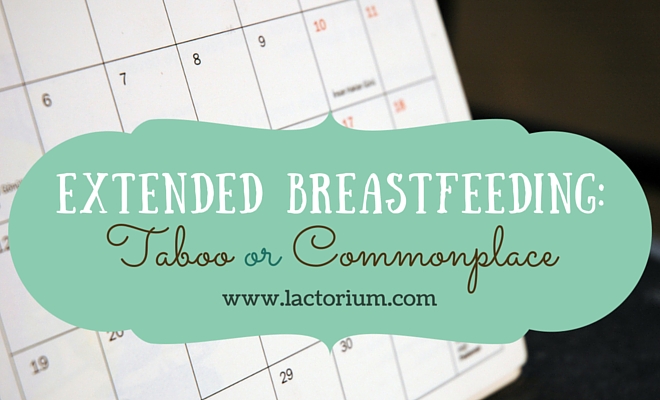
Breastfeeding
Extended Breastfeeding: Taboo or Commonplace?
There is no explicit definition as to when breastfeeding becomes ‘extended breastfeeding’ because the time period for breastfeeding varies from culture to culture and from mommy to mommy. Extended breastfeeding usually refers to breastfeeding your baby beyond the age of one.
According to the American Academy of Pediatrics, an infant should be breastfed for the initial six months after birth, and breastfeeding with solid foods up till the age of one.
Extension in the time period of breastfeeding is not a problem as long as the mother and the child are both comfortable and thriving. There are many benefits to breastfeeding past the age of one and here’s why:
Extended Breastfeeding is Useful
World Health Organization commends extended breastfeeding up till the age of two years and more. It is positive for maternal health as well as the child’s emotional and nutritional wellbeing.
It Benefits The Baby In More Ways Than One
Physical
Breast milk provides more essential nutrients to the child than solid food. Kids can stop eating when they teething, consequently breast milk is the only source of nutrients they get during that stage and it also soothes and comforts them.
Breast milk contains antibodies which strengthen the immune system of toddlers when they feel sick. As the child’s immune system completely develops by the age of six, the antibodies that they receive from breast milk continues to boost their immune system.
Extended breastfeeding has also proven to prevent food intolerance, allergies, asthma, and eczema.
Emotional
Breastfeeding acts as a comforting time between the child and their mother. It provides the toddler with emotional stability. Extended breastfeeding gives the child a sense of security on the basis of which the child opens up to exploring the world on their own. The child doesn’t become clingy, dependent, or spoiled as stigma suggests. In fact, they develop the ability to be secure in their surroundings and venture out of their comfort zone.
Cognitive
It has also been suggested that kids who go through extended nursing are high in intelligence and have enhanced cognitive abilities.
It Benefits Moms Too
The mother also benefits from extending breastfeeding. It provides protection against osteoporosis. Minor reduction (1 – 2%) of bone minerals takes place when the mother breastfeeds her child. It grows back more than it was initially, providing higher bone mineral density, after the mother discontinue breastfeeding. In addition, breastfeeding lessens the risk of different kinds of cancers which include: breast cancer, ovarian cancer, uterine cancer, and endometrial cancer.
Furthermore, extended nursing helps mothers lose weight with greater ease. Moreover, it represses ovulation causing postponement in fertility.
Even after many researches, a lot of mothers don’t breastfeed their children for more than a year. It may be because of the social pressure that they face or the stigma attached to it. We must keep in mind that forcing babies to stop breastfeeding immediately after they turn one year of age might cause problems for them physically and emotionally during that time. Therefore, we must make sure to wean babies when both mommy and baby are ready.


0 comments